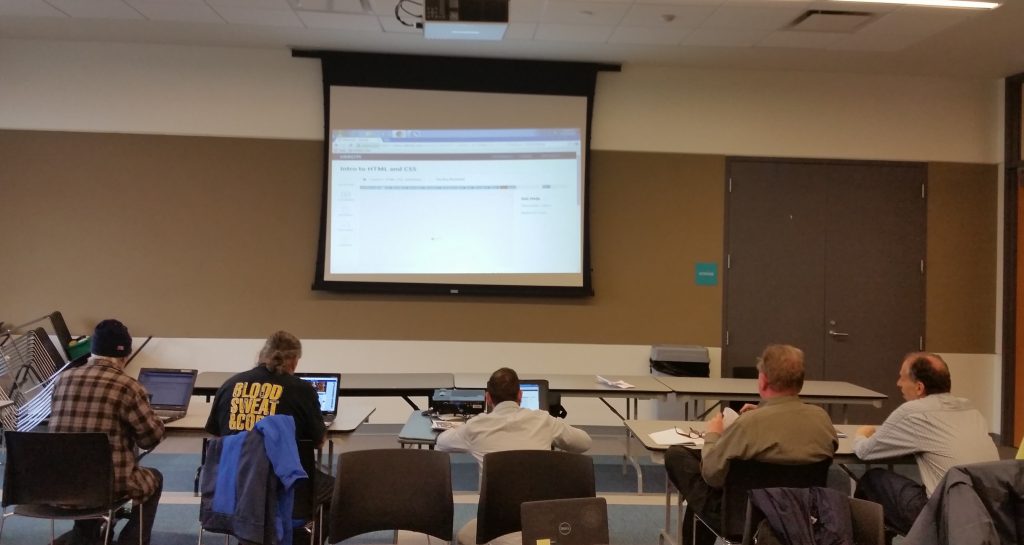Posted on May 6, 2020

By Dan Bayer
Like many other activities in the COVID-19 era, the Learning Circles project has had to adapt to a world of social distancing and closures. Originally, the project was designed to involve groups of learners meeting at the Greensboro Public Library to take online courses together, discuss technical issues and provide each other with support. Now, the program is looking at ways to move the groups…. well, online.
“COVID-19 creates some challenges,” says Dr. Cristiane Damasceno, the Communication Studies Department faculty liaison for the project. “We may have to develop different structures” to allow participants to interact with one another.
Learning Circles are face-to-face study groups for people who are taking online classes. The circles provide learners with facilitators, peer support and technical help in a physical environment. The concept was pioneered by P2PU (Peer 2 Peer University), which launched a pilot program in Chicago in 2015. The program can also serve to create a sense of community among non-traditional learners who might otherwise be isolated from traditional education environments due to age or other factors (Redshaw et al., 2018).
“I worked with P2PU and studied the pilot round in Chicago,” says Damasceno. “It seemed a really good fit for Greensboro because it targets adult learners and adds to the library’s portfolio of digital literacy-related programs. I took my idea to Beth Sheffield and she was very interested. Her involvement was fundamental to bringing the project to Greensboro.”
“The groups can meet at a library or other public space,” Damasceno says. The advantage of the library is that it provides internet access for people who may not have it at home and it allows technical help for people who may lack the skill to navigate the internet.
The social distancing and shelter-in-place orders create challenges as well as new demands for a program like Learning Circles, says Damasceno.
“How do you reach people who may not have internet access, but want to take online courses? Not having a physical location would exclude those without access,” she says. To that end, the project is investigating how the learning circles might work on Zoom, or function on cell phones.
“P2PU and volunteers created a handbook to guide the transition to online,” says Damasceno. “We’re just going to have to develop and test different structures.”
The Greensboro library began limited service on June 1, allowing book returns with all fines waived from March 12 through June 29. Beginning June 10, the library will offer curbside service for books placed on hold. A limited “grab and go” service will begin on June 29 where patrons can enter the library and select books and other materials, but there will be no public computer use, in-house programs or use of public meeting rooms.
Redshaw, S., Ingham, V., McCutcheon, M., Hicks, J. & Burmeister, O. (2018). Assessing the Impact of vulnerability on perceptions of social cohesion in the context of community resilience in the Blue Mountains. The Australian Journal of Rural Health, Vol. 26, 14-19.